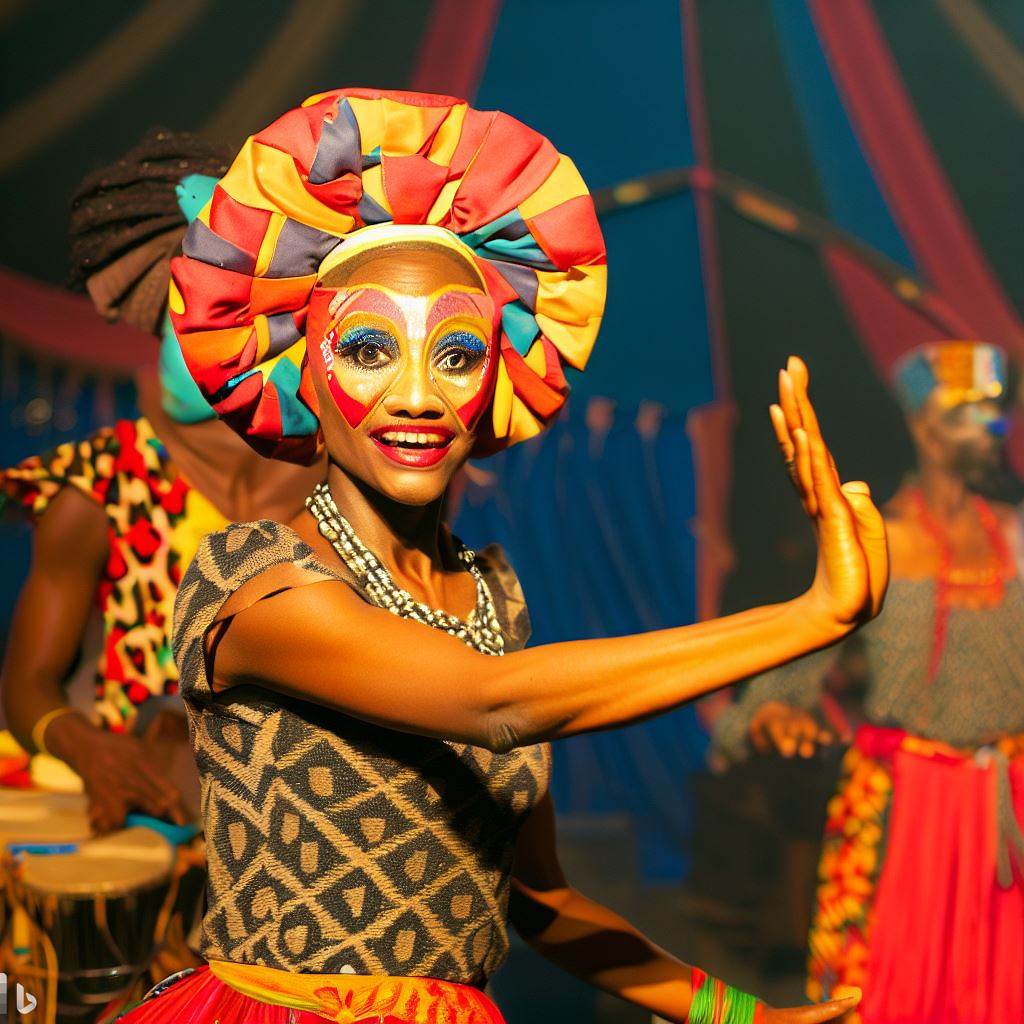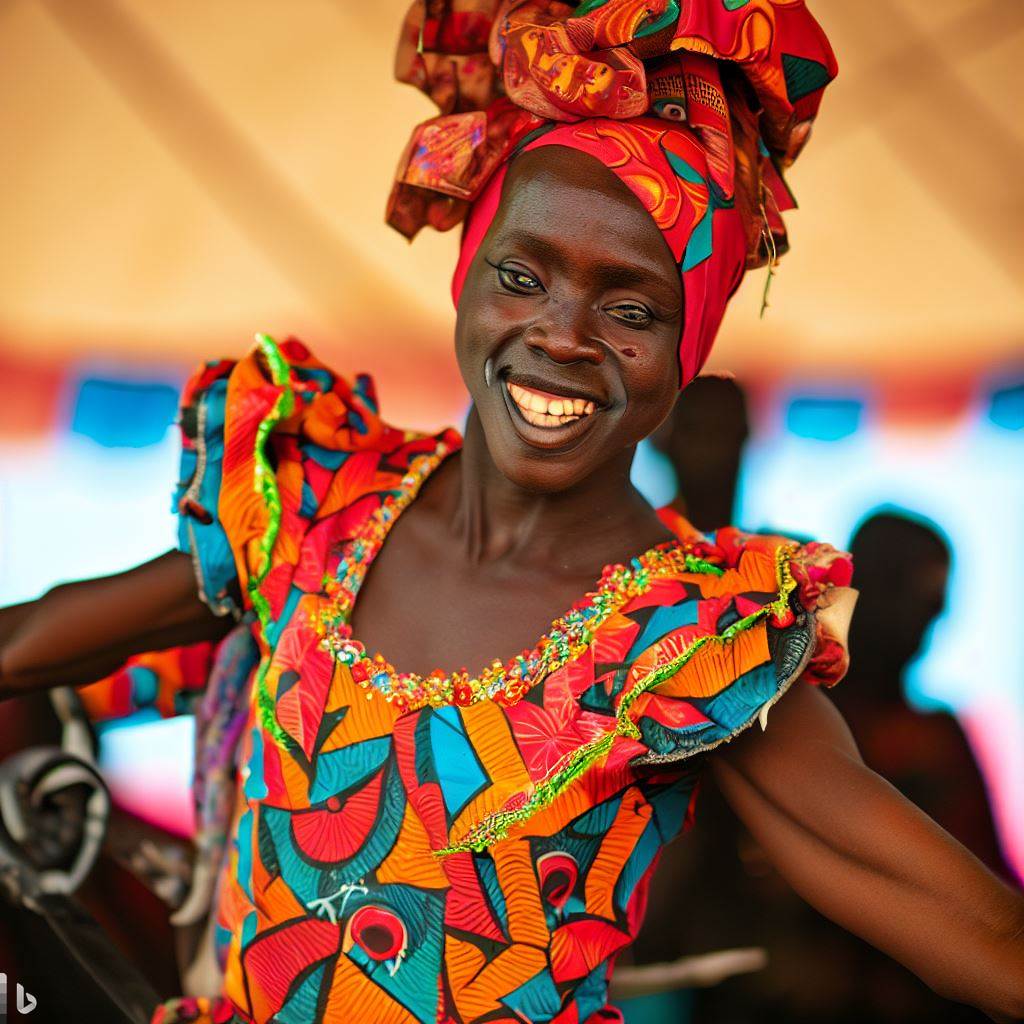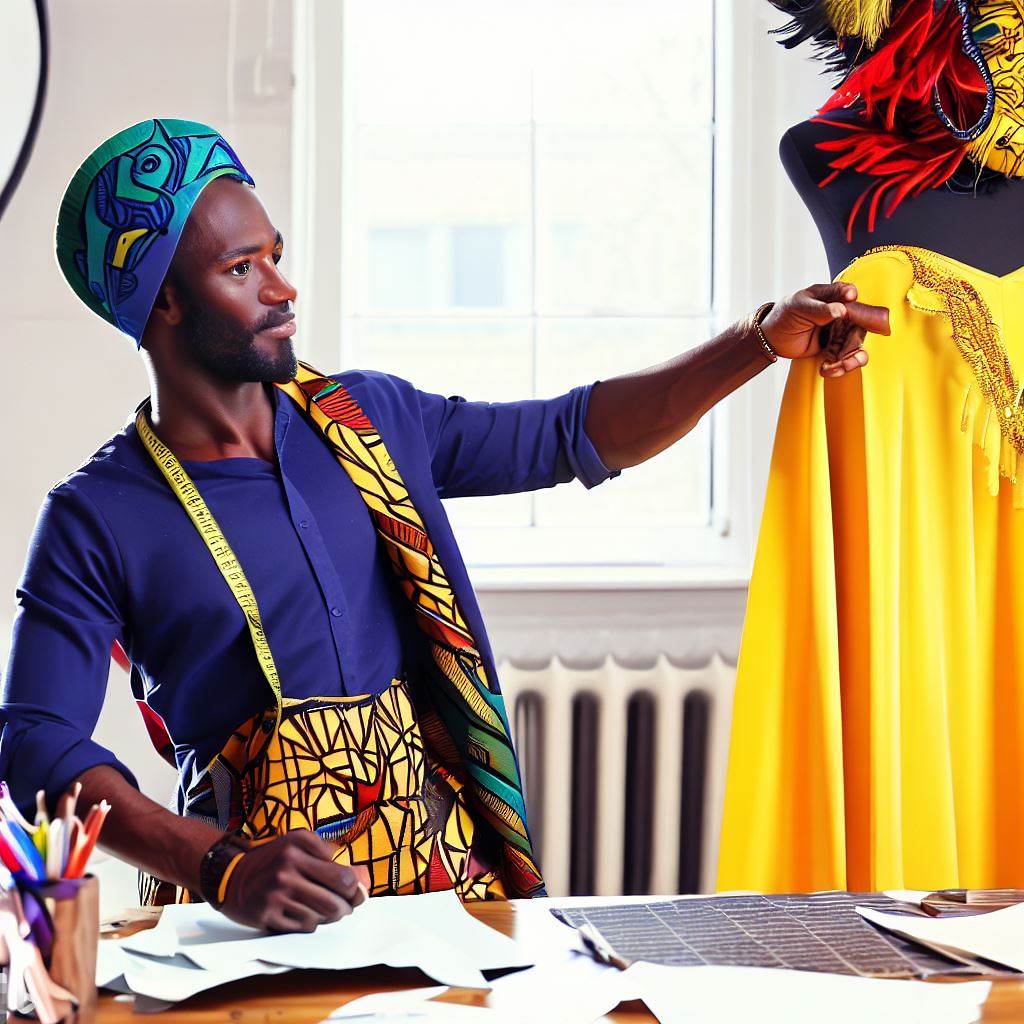Introduction
The circus performance scene in Nigeria has been growing rapidly in recent years.
Discussing the role of women in this industry is essential to understanding its dynamics and potential.
Women have been making significant contributions and driving innovation in Nigeria’s circus performance scene.
Understanding the role of women in this industry can shed light on broader issues of gender and empowerment.
This section aims to highlight the importance of women’s contributions and explore the challenges they face.
Through this exploration, we can foster inclusivity and encourage more women to participate in the circus performance scene.
Understanding the experiences of women in this industry will contribute to a more comprehensive understanding of Nigerian arts and culture.
This section will examine the achievements, struggles, and potential of women in Nigeria’s circus performance scene.
Historical Context of Women in Nigeria’s Circus Performance Scene
A. Overview of traditional gender roles in Nigerian society
- Women in Nigeria were primarily expected to fulfill domestic roles, such as taking care of the household and raising children.
- Gender roles were strictly defined, with men being considered the breadwinners and decision-makers.
- Traditional cultural beliefs often enforced the idea that women should prioritize marriage and family over pursuing careers.
- There was a lack of opportunities and societal support for women in non-traditional fields such as circus performance.
B. Challenges women faced in pursuing circus performance as a profession
- Limited access to education and training: Women had limited opportunities to acquire the necessary skills and knowledge for circus performance.
- Social stigma and stereotypes: Female circus performers were often stigmatized and faced negative stereotypes, which deterred many women from pursuing this profession.
- Family and societal pressure: Women were expected to prioritize their roles as wives and mothers, making it difficult for them to pursue careers in circus performance.
- Lack of representation and role models: The absence of female role models in the circus performance scene made it challenging for women to envision themselves in this profession.
- Gender discrimination and unequal pay: Women in the circus performance scene often faced discrimination and were paid less than their male counterparts.
- Unsafe working conditions: Some circus performances involved physically demanding acts that might pose risks to women’s safety.
Despite these challenges, women in Nigeria’s circus performance scene gradually started asserting their presence and breaking gender barriers.
They began challenging societal norms and carving out spaces for themselves in what was traditionally a male-dominated industry.
Women’s empowerment movements and organizations emerged to support and promote the inclusion of women in circus performances.
These initiatives provided training opportunities, mentorship, and advocacy for women in the industry.
Over time, the increased visibility and success of female circus performers in Nigeria has started dismantling stereotypes and changing perceptions.
Women are now being recognized for their talent, creativity, and contributions to the circus performance scene.
Today, women in Nigeria’s circus performance scene continue to overcome challenges and push boundaries.
They have not only achieved personal success but have also become role models for aspiring female performers.
Read: Insights into Nigeria’s Performer Management Industry
The Changing Landscape
- The emergence of female-led circus troupes in Nigeria: Historically, circus performances in Nigeria were predominantly dominated by men.
However, in recent times, women have been stepping into leadership roles and forming their own troupes. - Increased visibility and recognition of women performers: With the rise of female-led circus troupes, there has been a significant increase in the visibility and recognition of women performers in Nigeria.
They have garnered attention and appreciation for their skills and artistry. - Breaking stereotypes: Women in Nigeria’s circus performance scene have been breaking stereotypes associated with their gender.
They are defying societal expectations and proving that they are equally capable of showcasing jaw-dropping feats and mesmerizing acts. - Challenging societal expectations: Nigerian society has traditionally assigned specific gender roles and expectations to women, often relegating them to supporting roles.
However, women in the circus scene are challenging these expectations by taking on leadership positions and showcasing their talents. - Encouraging skill development: The presence of women in Nigeria’s circus performance scene has encouraged skill development and training opportunities specifically tailored for them.
Workshops and programs have emerged to provide them with the necessary resources to excel in the field. - Promoting inclusivity and diversity: The increasing participation of women in the circus performance scene adds to the overall inclusivity and diversity of the field.
It breaks the monotony of male-dominated performances and brings fresh perspectives and styles to the forefront.
It emphasises the dynamic nature of various fields and the importance of staying informed and responsive to emerging trends and developments.
Read: Case Study: Successful Artist Managers in Nigeria
Challenges and Triumphs
A. Gender-based discrimination in the circus industry
- Women in Nigeria’s circus performance scene often face gender-based discrimination.
- They are often subjected to stereotypes that limit their roles and opportunities.
- Women performers may be perceived as less physically capable than their male counterparts.
- Society’s expectations of traditional gender roles can further hinder women’s success in the industry.
- This discrimination can lead to limited opportunities for women in terms of training and performance roles.
B. Overcoming societal barriers and stereotypes
- Despite these challenges, women in Nigeria’s circus performance scene are breaking barriers.
- They are challenging societal norms and defying expectations by excelling in their craft.
- Women performers are actively working towards changing societal perceptions about their abilities.
- They are proving that gender does not determine one’s skills or potential in the circus industry.
- Through their determination and resilience, women are inspiring future generations of performers.
C. Success stories of women performers in Nigeria
There are numerous success stories of women in Nigeria’s circus performance scene.
- One such example is Tijani Hafsat, an aerial silk artist who has gained recognition for her breathtaking performances.
- Hafsat’s talent and dedication have earned her opportunities to perform both nationally and internationally.
- Another success story is Chinasa Emekalu, who is renowned for her acrobatic skills and fearless stunts.
- Emekalu’s performances have not only impressed audiences but also paved the way for other aspiring female acrobats.
- Fatimah Yusuf is a talented contortionist who has captivated audiences with her flexibility and unique routines.
- Despite societal pressures, Yusuf continues to push boundaries and challenge traditional norms in circus performances.
Read: How to Navigate the Nigerian Performance Art Scene

Promoting Gender Equality in the Circus Performance Scene
In Nigeria’s circus performance scene, there is a growing recognition of the importance of promoting gender equality.
Several organizations and initiatives are actively supporting women in circus arts, striving for equal opportunities and representation.
It is crucial to educate the public on the significance of gender equality in the arts.
A. Organizations and initiatives supporting women in circus arts
- Women in Circus Nigeria: This organization aims to empower women in the circus industry, providing them with training, mentorship, and performance opportunities.
- Gender in Circus: An international initiative that focuses on promoting gender equality in the circus arts, offering workshops, networking events, and resources for female artists in Nigeria.
- Circus for Women Nigeria: This organization combines circus skills training with empowerment workshops, creating a safe and inclusive space for women to express themselves through performance.
- Nigeria Circus Federation’s Women Empowerment Program: The federation actively promotes female participation in the circus arts, offering scholarships, mentorship, and career development opportunities to aspiring female performers.
B. The importance of equal opportunities and representation
Providing equal opportunities and representation for women in the circus performance scene is essential for several reasons.
- Breaking stereotypes: By showcasing women’s talents and skills on stage, the circus industry challenges traditional gender roles and stereotypes.
- Empowering women: Equal opportunities empower women, they pursue passions, gain financial independence, and challenge societal norms effectively.
- Inspiring the next generation: Watching women in the circus inspires young girls to believe in themselves and aspire to become circus artists.
- Fostering diversity: Gender equality in the circus arts ensures diversity of perspectives, experiences, and artistic creations, enriching the overall artistic landscape.
C. Educating the public on gender equality in the arts
Alongside efforts to support women in the circus arts, it is crucial to educate the public on the importance of gender equality.
- Public awareness campaigns: Organizations should launch campaigns to raise awareness about the need for gender equality in the arts, highlighting the contributions of women artists.
- Workshops and seminars: Conducting workshops and seminars that explore gender issues in the circus arts can help change perceptions and increase understanding among the general public.
- Collaborative projects: Encouraging collaborations between male and female circus artists promotes inclusivity and challenges gender biases within the industry.
- Supportive policies and funding: Governments and arts institutions should implement policies and provide funding to support gender equality initiatives in the circus performance scene.
Promoting gender equality in Nigeria’s circus performance scene requires the collective efforts of various organizations, initiatives, and the public.
By supporting women in circus arts, providing equal opportunities, and educating the public, a more inclusive and diverse circus industry can be achieved.
Let us work together to create a future where gender equality is a given in every aspect of the arts.
Read: The Evolution of Artist Management in Nigerian Music
Cultural Impact and Empowerment
A. The influence of women circus performers on Nigerian culture.
Nigerian women circus performers have made a significant impact on the country’s culture by challenging traditional gender roles and breaking barriers.
B. Empowering women through circus arts.
Circus arts provide a platform for women in Nigeria to express themselves, gain confidence, and assert their identity.
C. Inspiring the next generation of female performers.
By showcasing their skills and talent, women circus performers in Nigeria inspire young girls to dream big and pursue their passions.
Women in Nigeria’s circus performance scene have played a vital role in shaping the country’s culture and empowering themselves and others.
Through their influence, they have challenged traditional gender roles and inspired the next generation of female performers.
Nigerian women circus performers have had a significant impact on the country’s culture.
Their performances have become a symbol of female empowerment and a source of inspiration for many.
Circus arts provide a unique platform for women in Nigeria to express themselves and gain confidence.
Through their performances, women can showcase their strength, agility, and creativity.
This form of self-expression allows them to challenge societal norms and stereotypes, empowering themselves and other women who witness their acts.
The empowerment provided by circus arts goes beyond the individual performer. Women in the circus performance scene inspire the next generation of female performers.
Their stories and achievements show young girls that they can pursue any dreams they have, regardless of gender.
They encourage young girls to break free from societal limitations and embrace their passions and potential.
Their presence and success in the industry challenge traditional gender roles and provide a new narrative for women’s roles in Nigerian society.
They are not only performers but also role models for other women, showing them that they too can succeed in male-dominated fields.
Conclusion
Women in Nigeria’s circus scene break barriers, showcasing talent. Gender equality is vital—equal opportunities, recognition, and support matter.
By recognizing the contributions of women performers, we can ensure a diverse and inclusive circus performance scene in Nigeria.
It is essential to provide them with the necessary support and resources to thrive in this industry.




